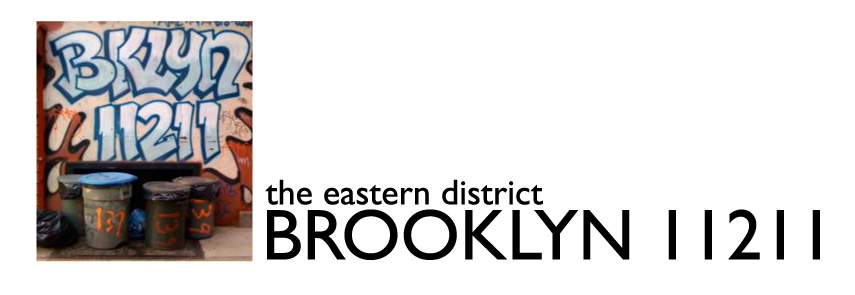On Gowanus Lounge this morning, Robert has a list of remedies for DOB failings. Here’s a quick rundown, with my handicapping:
1) […] The number of inspectors should be at least doubled, if not tripled. Until the numbers are increased, there should be a cap on the number of permits for major projects that can be issued.
The mayor has already announced that it has added 88 new staff lines and is creating 7 new special enforcement teams. Don’t know if that doubles the number of inspectors, but clearly there is a recognition that the number of existing inspectors is inadequate.
As for a cap on permits, no way. It would be wrong, and probably illegal to boot.
2) The Department of Buildings should be permanently removed from the purview of any of the city’s economic development officials… Encouraging development and regulating it are not compatible tasks. Its work should be subject to regular audits by the City Comptroller.
Interesting idea – clearly the tension between facilitating construction and regulating it is a problem. As it is, though, cumbersome regulations make development in the City way too expensive. Perhaps the switch over to the international building code will change this, and in the process, hopefully eliminate the high priesthood of expedition. But clearly, there needs to be a fundamental shift in the basic philosophy of the agency towards regulation and accountability.
On the Comptroller, I would assume that DOB is already subject to audits. I wonder if any have been done?
3) Each Community Board should have an independent ombudsman to supervise the Department’s work.
This is something NAG and members of CB1 have been advocating for for ages. The intricacies of the DOB system defy the ability of lay people to understand the system or their rights within it. But any ombudsoperson would probably have to be funded through private grant money.
4) Dramatically increased monetary penalties for violations… building permits should also be suspended for the most serious violations starting with 30 days and escalating to 60 and 90 days.
Likewise, an automatic 5-day suspension of work should be instituted for illegal after-hours work. Stop work orders in general are probably more effective than fines, particularly in a bullish market. (The issue of meaningful penalties is also something that DOB has already said it will address.)
5) There should be criminal penalties for both developers and contractors whose actions or negligence result in loss of life.
I believe there are, though they are probably very hard and very costly to prove.
6) Persistent offenders–contractors and developers–should be put on a special list for highly targeted enforcement and be subject to even higher fines. Firms with a pattern of violations… should have their ability to work in the city revoked for a period of time.
Again, much of this already on DOB’s list. The big problem with developers and contractors, though, is that they tend to operate behind corporate veils, not as individuals. It is very difficult to penetrate the web of development LLCs involved in projects and to find the common denominators. Contractors who lost their licenses (or get into financial trouble) quickly reincorporate under new names.
7) Create target enforcement neighborhoods in each borough based on the level of development. In Brooklyn, for instance, Williamsburg and Greenpoint should be a No. 1 priority. These target neighborhoods should be assigned significant numbers of inspectors to increase response times to complaints and to patrol construction sites.
Very similar to the “hot zone” concept proposed by Evan Thies.
8) The city should make necessary repairs to sites that are shut down if developers don’t fix problem quickly, so that abandoned sites don’t become hazards to the community. The city should charge back costs to developers and property owners and seize property for unpaid bills.
Having finally gotten out of the business of acquiring delinquent properties, I’m not sure the city wants to go there again.
9) There should be a zero-tolerance approach to violations. Non-enforcement on small violations leads to bigger violations in a sort of Broken Windows Construction Phenomenon. There should also be 24-hour follow up and immediate dispatch of inspectors on some calls, clearly including life safety issues, but also involving quality of life complaints such as illegal and after-hours construction.
On the first point, this also seems to fit within what DOB has already said it plans to do. On the second, this is a point I have made repeatedly, particularly with regard to the quality-of-life complaints.
10) Permit fees should increased to fund the entire program of more rigorous inspection and the workforce necessary to do so.
Yes.
11) Firms with a pattern of violations should be barred from bidding on city contracts or doing city work.
This can only work for architects and large construction firms. Its too easy for developers and contractors to reorganize under new corporate entities to make this enforceable for them.
12) The city should issue a monthly “scorecard” in a simple format, grading developers and contractors on their violations or lack of them in each borough.
I’d rather see BIS get revamped so the average citizen could go there and see how a project is doing. As it is, the system in nearly impenetrable. Better still is DOB’s own proposal to institute a Comp-Stat program for tracking complaints and violations.
One final thing from DOB’s press release last month – Commissioner Lancaster promised that “in the next month [she] will outline an aggressive legislative agenda that will call for increased enforcement tools for the Department.” The month is almost over.
